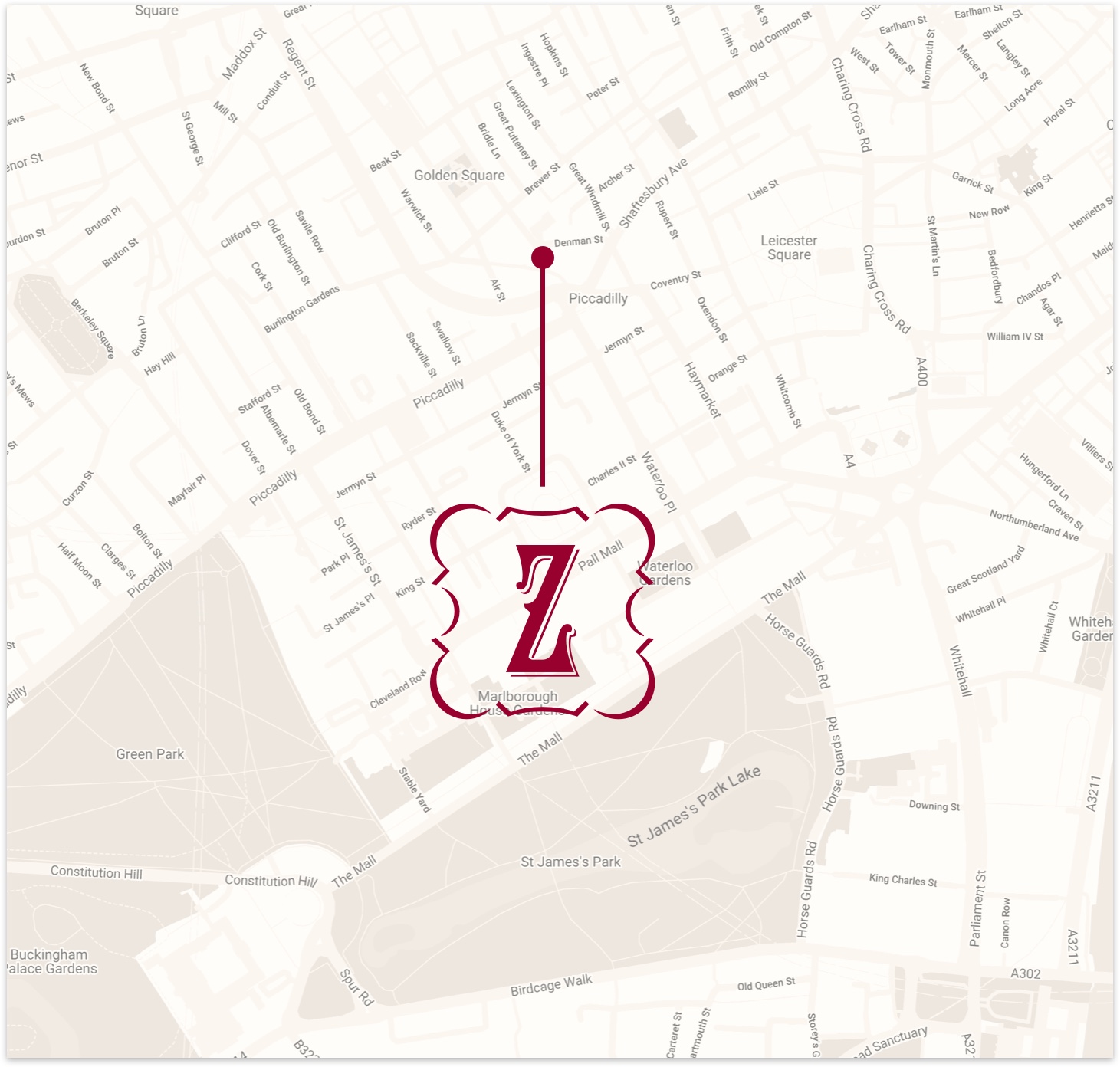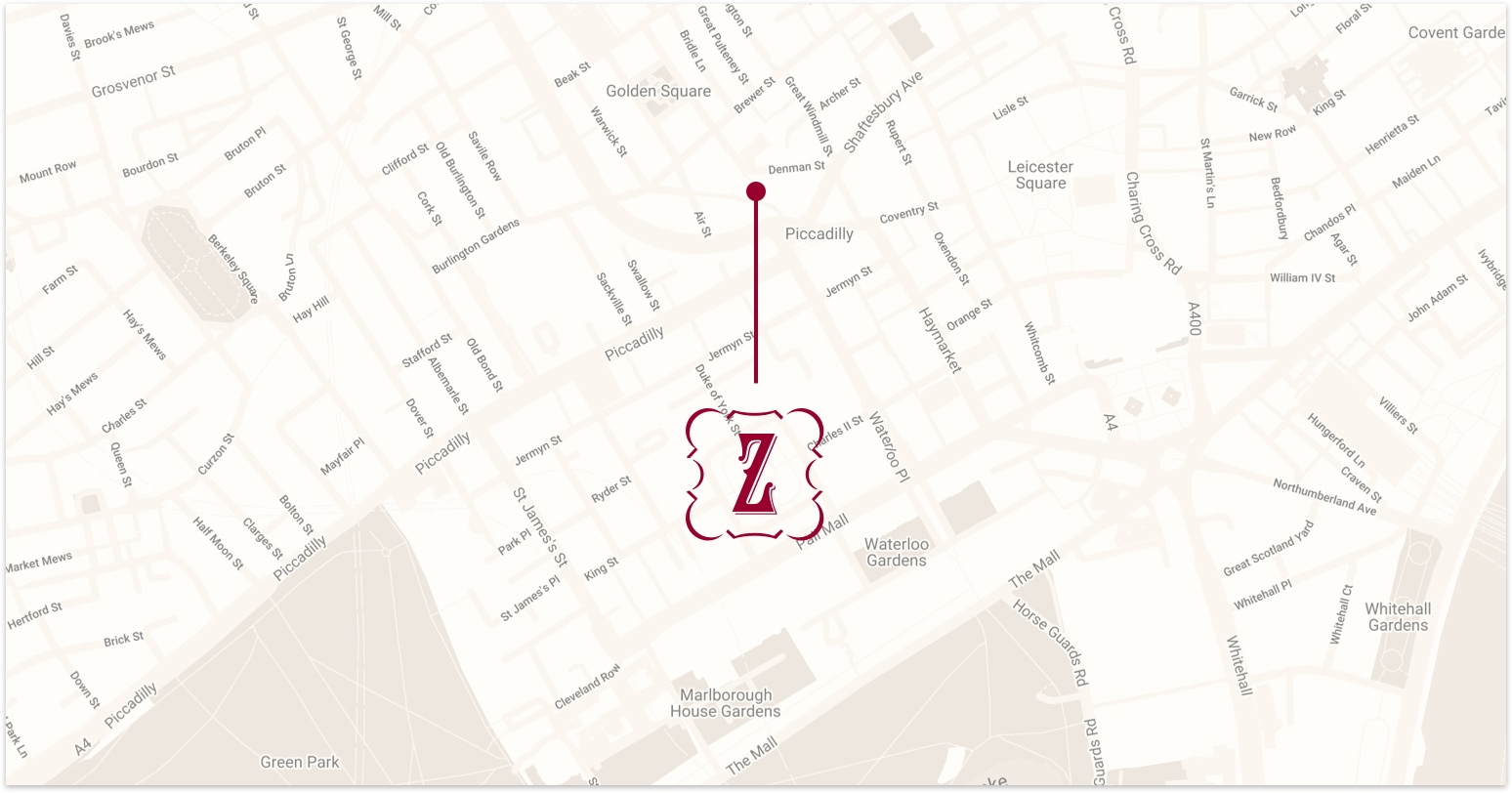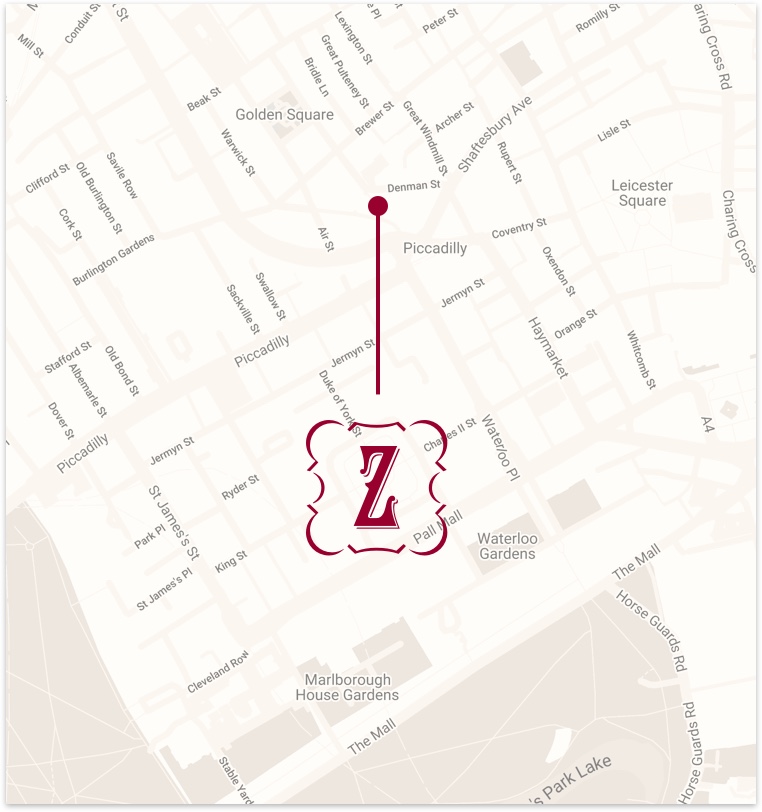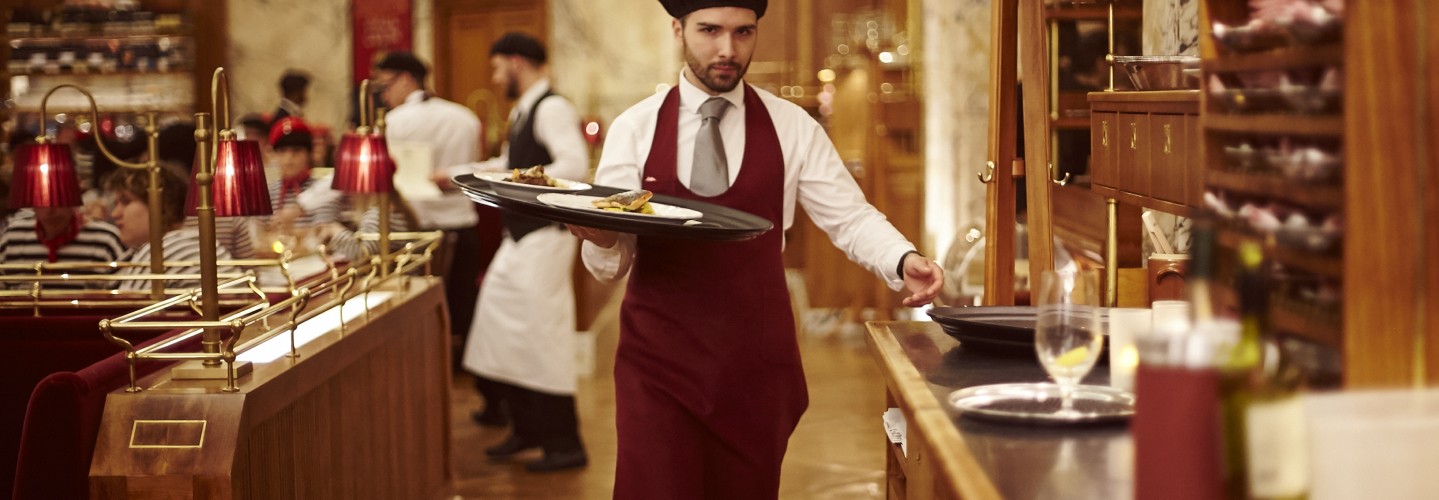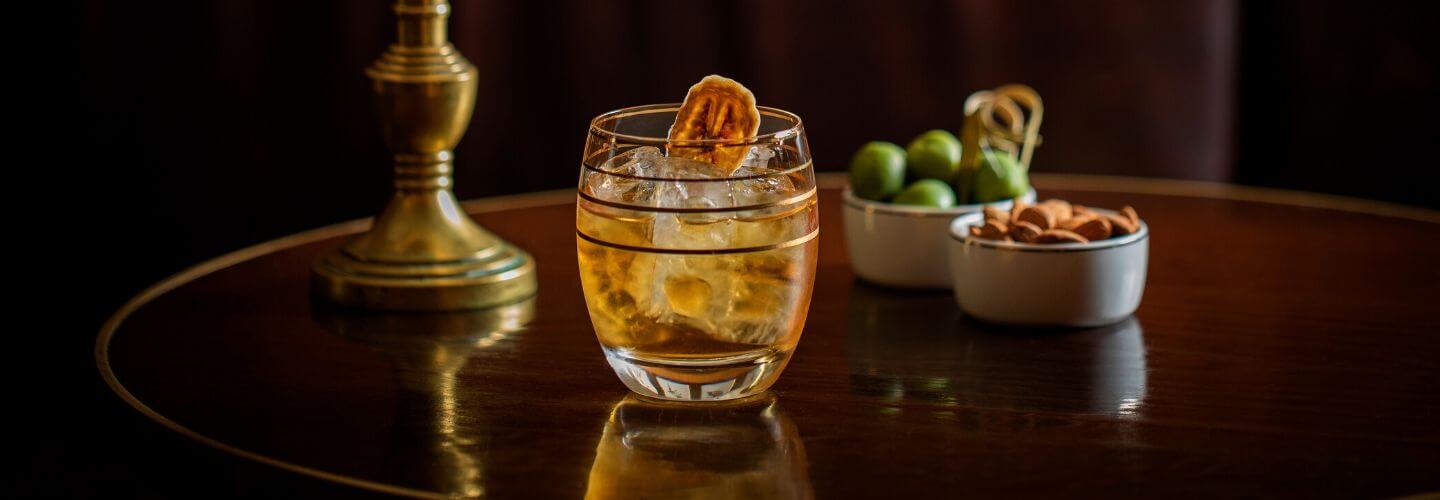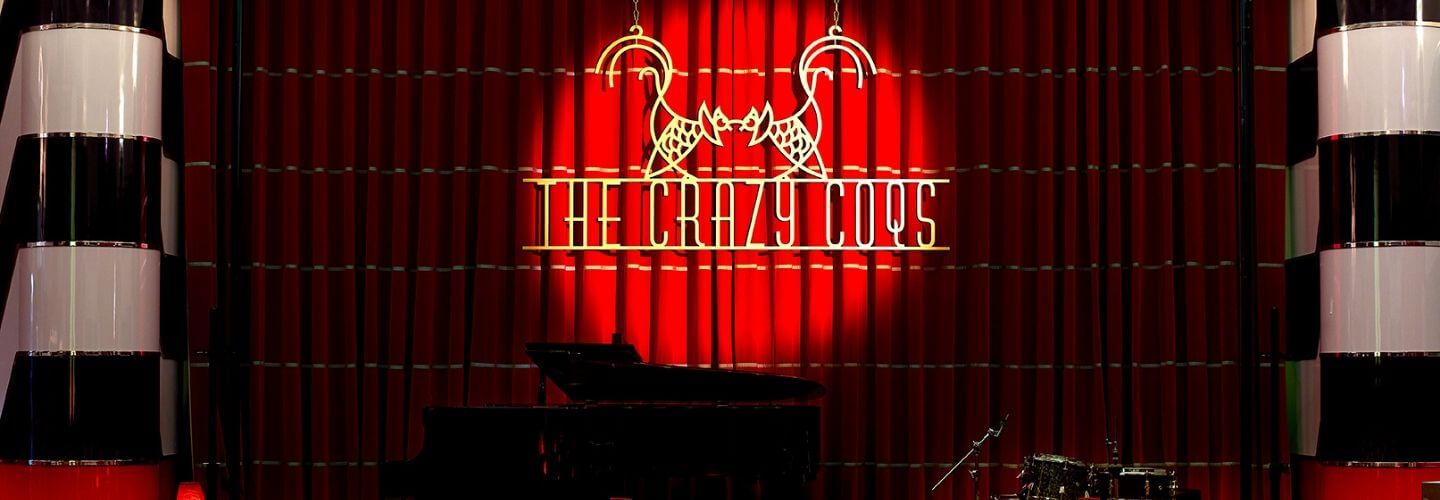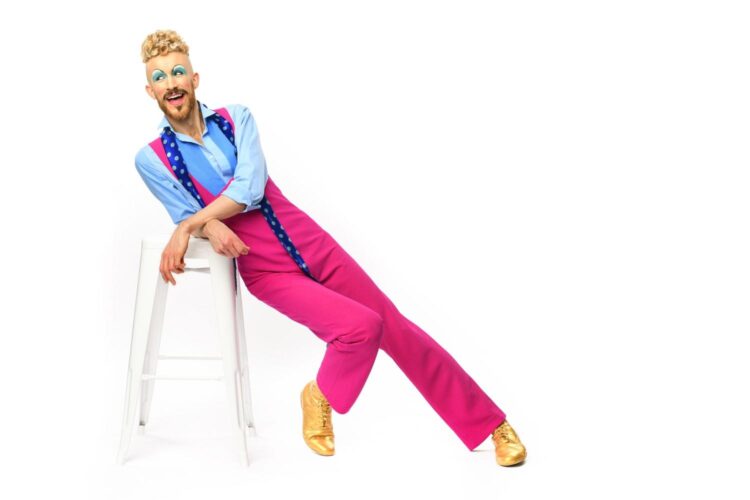
A favourite on the London cabaret scene, Andrew has performed as a solo artist and as an MC for more than two decades. An actor and musical star, he began his career in the original West End production of Mary Poppins. Most recently, he played Hysterium in A Funny Thing Happened on the Way to the Forum at the newly reopened Lido2Paris. Andrew takes a break from his unmissable monthly residency with us to share his passions and career …
Tell us what drew you to the world of entertainment?
Two very different Michaels! As a small child, I was obsessed with Michael Jackson and spent hours in front of the mirror making up my own choreography. Then I saw Michael Crawford when my parents took me to see a performance of Barnum in Manchester at the age of five – I was instantly enraptured by the opulence of the theatre (all that velvet!), and the two worlds of the stage and the audience. Many years later, I discovered the Holy Trinity, aka Bette Midler, Barbra Streisand and Liza Minnelli. With those three I found the perfect marriage of theatre, storytelling and solo performance. I eventually trained as an actor.
How did you come to create your eponymous show and what can we expect from it?
It’s really evolved organically over the decades; some elements of it are vintage and some are brand new. Cabaret was something I always did in between acting jobs, but now both worlds feed into each other. A few months ago, someone who’d been to my show described me as the love child of Marcel Marceau, Edith Piaf, Bette Midler and Prince. I love that! I work with two fantastic musicians: pianist, Alex Maynard; and drummer, Tristan Butler. Together we’re always editing and fine-tuning. There are so many musical styles in the show, from 1960s Broadway and chanson to disco and The Beatles – it all works together because everything’s underpinned by storytelling.
How do music and comedy intertwine in your performances?
There are some jokes in there, and some physical comedy (I’m over 6 foot and very ‘limby’, so that’s not hard!), but really the music takes centre stage. I’m not a concert cabaret performer in the sense of introducing one song after another; instead the storytelling takes the lead. The comedy is often there to fool you into thinking we’re going down one path, so that you’re surprised when we end up somewhere much darker. It’s like a cake mixture – there are loads of ingredients but they’re all blended together into something delicious.
Where do you get your inspiration from?
Pretty much everywhere. I go to the theatre and the cinema at least once a week and I’m a huge TV-drama junkie! I was recently obsessed with Michaela Coel’s I May Destroy You. TV is a very different medium to cabaret of course, but there’s always stuff I’m stealing in terms of story structure. Musically, I listen to anything and everything. My iPhone constantly prompts new songs that I wouldn’t unearth myself. It all feeds into the show; in the early days, I drew a lot of inspiration from musical theatre, whereas now the material is very diverse. I’m a magpie.
What do you enjoy the most about your job and what is the most challenging element?
The performing side continues to appeal to me as much now as when I started. The connection between performer and audience still gives me all the feels, especially at Crazy Coqs because it’s such an intimate venue; I can look the audience directly in the eyes. The challenges of course are the age-old issues of making sure people know about the show.
What have been your highlights over the years and why?
There have been so many, including my recent stint playing Hysterium in A Funny Thing Happened on the Way to the Forum at the newly reopened Lido2Paris. Performing that role, in that venue, was heaven. Everything I’d learned about cabaret and acting came together on that show. And living in Paris – beautiful Paris – truly a dream come true. And then, of course, there have been many cabaret highlights. It’s the audience interjections that are (mostly) magic. They force you to adlib and really be present. It’s why no show is ever the same. On a good night, something really special and singular happens. We live on autopilot so much of the time, I think, but live performance shakes things up and forces you to be in the moment

